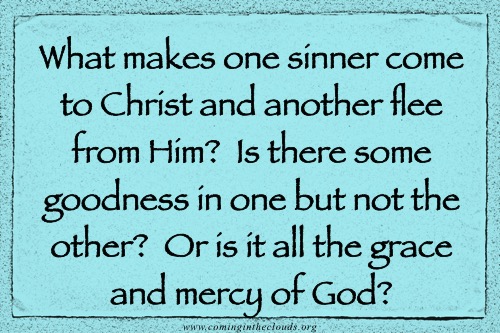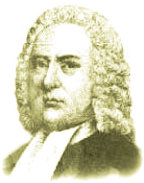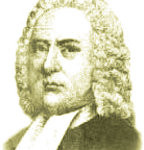Spurgeon’s Arminian Prayer
The Prayer Of Those Who Believe In The False “Free Will” Gospel

Charles H. Spurgeon, a famous reformed (Calvinistic) Baptist preacher of the 1800s, is quoted in the following prayer. Spurgeon made up this “pharisaical prayer” in order to illustrate the human pride underlying the idea of an unsaved, ungodly, rebellious – and spiritually dead – sinner exercising his “free-will” to choose the Lord Jesus Christ as his Savior, i.e. to come to Christ of his own free-will.
“Lord,… Continue reading
Feeding Sheep Or Amusing Goats?
Feeding Sheep Or Amusing Goats?
by C. H. Spurgeon (1834-1892)
A message from more than one hundred years ago that is even more relevant to the Church of our day.

Using Entertainment To Win People To Christ.
An evil is in the professed camp of the Lord, so gross in its impudence, that the most short-sighted can hardly fail to notice it. During the past few years it has developed at an abnormal rate, even for evil It… Continue reading
John Gill and His Successors
John Gill and His Successors

The witness and teaching of Dr John Gill (1697-1771) so impressed his friends Augustus Toplady and James Hervey that they maintained his work would still be of great importance to future generations. This also became the conviction of John Rippon (1750-1836) and Charles Haddon Spurgeon (1834-1892), Gill’s more well-known successors to his pastorate, but it was also the testimony of those who served for shorter periods at Carter Lane such as John Martin, Benjamin… Continue reading
The Happy Slappy Clappy Church
The Happy Slappy Clappy Church
(A Parody About The Modern Man-Pleasing Seeker-Friendly Church)

We are the modern-day seeker-friendly feel-good church. Our church does not have a statement of faith because we don’t want to be considered dogmatic or legalistic about what we believe. Neither do we want anyone to feel left out or unwelcome because they may not agree with us on something. We want everyone (with some exceptions[1]) to be able to relate to us and our church… Continue reading
Super Bowl – Yet Another Idol
Super Bowl – Yet Another Idol
“For where your treasure is, there will your heart be also.”
[Matthew 6:21]

Just think of it, millions of people gathered attentively and excitedly around an electronic appliance that relays two dimensional images of grown men running around a field with a little ballie, shoving each other and bashing into each other for a chance to carry the little ballie. The players are grown men, beating each other up for a living, acting… Continue reading






















